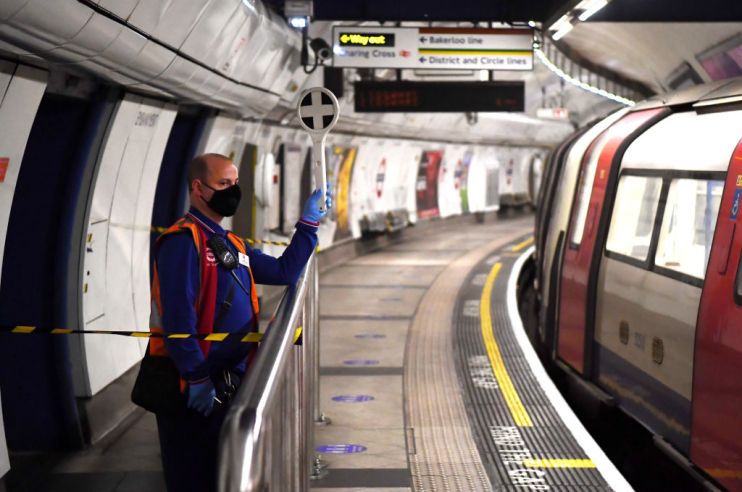Bailout shows the need for a TfL rethink

We will probably never know exactly how close we came to TfL going bust and services across London not running last week.
Unless, of course, when today’s bailout agreement expires in September, there isn’t another crunch. The capital’s transport network has had another log thrown on the fire, but central Government remains in control of the woodpile. The fact that the Government was prepared to let the city get down to the final glowing embers before helping – unlike transport systems in the rest of the country – is not reassuring for Londoners.
Read more: Whitehall bails out TfL hours before funding crunch
The deal itself is a £1.1bn grant and a £505m loan with provision made for these numbers to be increased to a total not exceeding £1.9bn. As with any fire, the deal has spat out a few sparks in the process – although these provide no meaningful heat or light.
The most eye-catching is the mandated rise in fares from January next year. But whilst the current Mayor had only committed to increases in line with inflation on the tube during this year’s abortive mayoral race, the RPI + 1% formula that the Treasury has insisted upon was already in TfL’s business plan. If this was a victory over the Mayor’s fares freeze, it was a pincer movement from central Government and TfL bean counters.
More concerning is the insertion of central Government back into decision making in London. TfL’s update to the Stock Exchange this morning euphemistically describes “appropriate governance and oversight arrangements” – this means central Government appointees will be attending TfL’s board meetings.
On the one hand, it isn’t unprecedented: Crossrail is jointly sponsored and funded by TfL and the Department for Transport. But since its creation 20 years ago, TfL has been operationally independent from central Government. This independence has increased in recent years as TfL has become the only transport authority in the Western world to receive no Government grant to support its day-to-day operations. All sides need to be clear throughout these ongoing negotiations that a long-term increase in Whitehall influence in London transport is unlikely to be in the interests of Londoners, and flies in the face of the Government’s rhetoric on devolution and local control.
This deal will force decisions on a number of things that were, in one form or another, already under review. One of the biggest challenges for TfL in the coming months will be managing demand at peak times and one of the few levers they have is the fare subsidy regime.
The temporary suspension of free travel at peak times for the over 60s, should not come as a surprise and may well outlive the current crisis. Many, but not all, of those over 60 travelling for free at peak times are going to work and more targeted mechanisms for subsidising travel for those who actually need it would be preferable.
Likewise, the Congestion Charge – which has been suspended but will now be reintroduced and probably increased – was once a bold and successful way to manage demand on our roads but in recent years has begun to turn into more of a blunt revenue raising tool. A review of road pricing in the capital has been looming on the horizon for some time.
And, of course, with TfL’s long-term finances stretched before the crisis, debates were already raging about both the absolute and relative importance of large and expensive capital projects – like Crossrail 2 and the Bakerloo Line Extension. These are undoubtedly all issues that need to be grasped, but under London’s (limited) devolved settlement they should be grasped by London, not by Whitehall.
Ultimately, TfL has ended up in this position because of an underlying tension in its funding structure and an unprecedented crisis that has reduced fares income by 90%. There is nothing that can be done about the latter, and the responsible way to run the network over the coming months is to continue to encourage people not to travel on public transport if they can avoid it. This is Government policy. This is TfL’s messaging.
This is why the two need to work constructively together to both keep Londoners safe, and keep the city moving. By contrast, the underlying tension in TfL’s funding is ultimately a political tension. It is about who controls things in the UK’s most productive region. That’s why this bailout has got so political, so quickly. The Mayor’s response highlights the need for a new funding model “which will involve either permanent funding from Government or giving London more control over taxes so we can pay for it ourselves – or a combination of both.”
As with the immediate operational challenges, securing a good outcome will require a constructive and cooperative approach from both sides. A partisan blame game would be a disservice to the greatest city in the world and the 9 million people who live here. Covid-19, and today’s bailout of TfL, has proved what many in London have long known: devolving responsibilities without devolving resources is no way to run a city.
